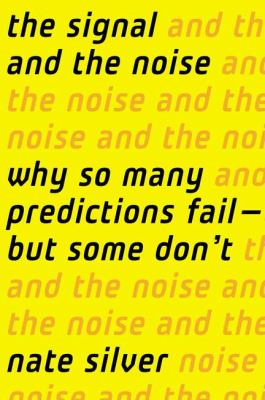
Book
|
The Signal And The Noise : why so many predictions fail - but some don't
Copies
1 Total copies, 0 Copies are in,
1 Copies are out.
Title
The Signal And The Noise : why so many predictions fail - but some don't
Call No
CB 158 .S54 2012
Authors
Subjects
Language
English
Published
New York : Penguin Press, 2012.
Publication Desc
534 pages : illustrations ;
ISBN
9781594204111
LCCN
2012027308
Dimensions
25 cm.
Awards Note
Wall Street Journal Best Ten Works of Nonfiction









